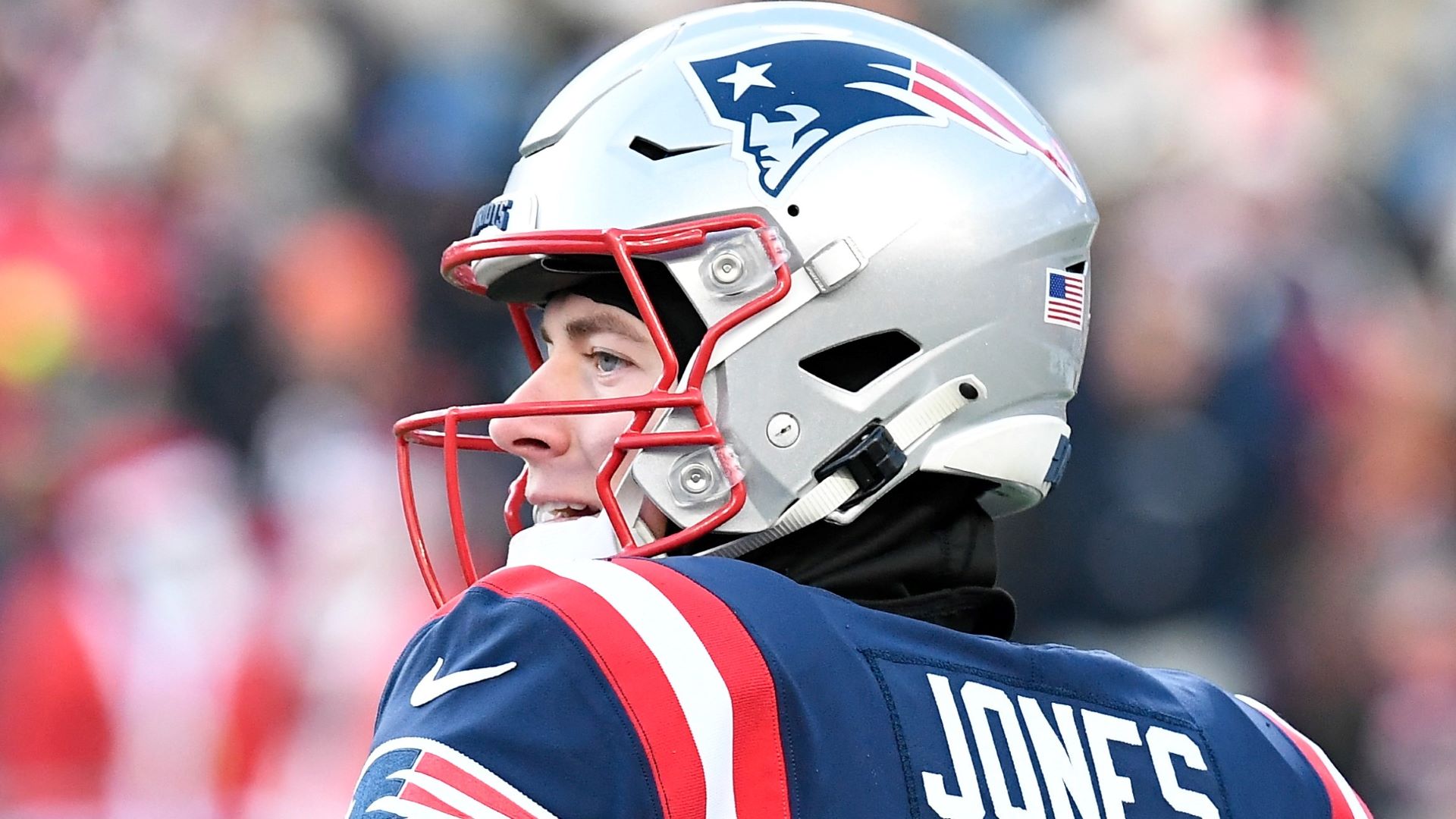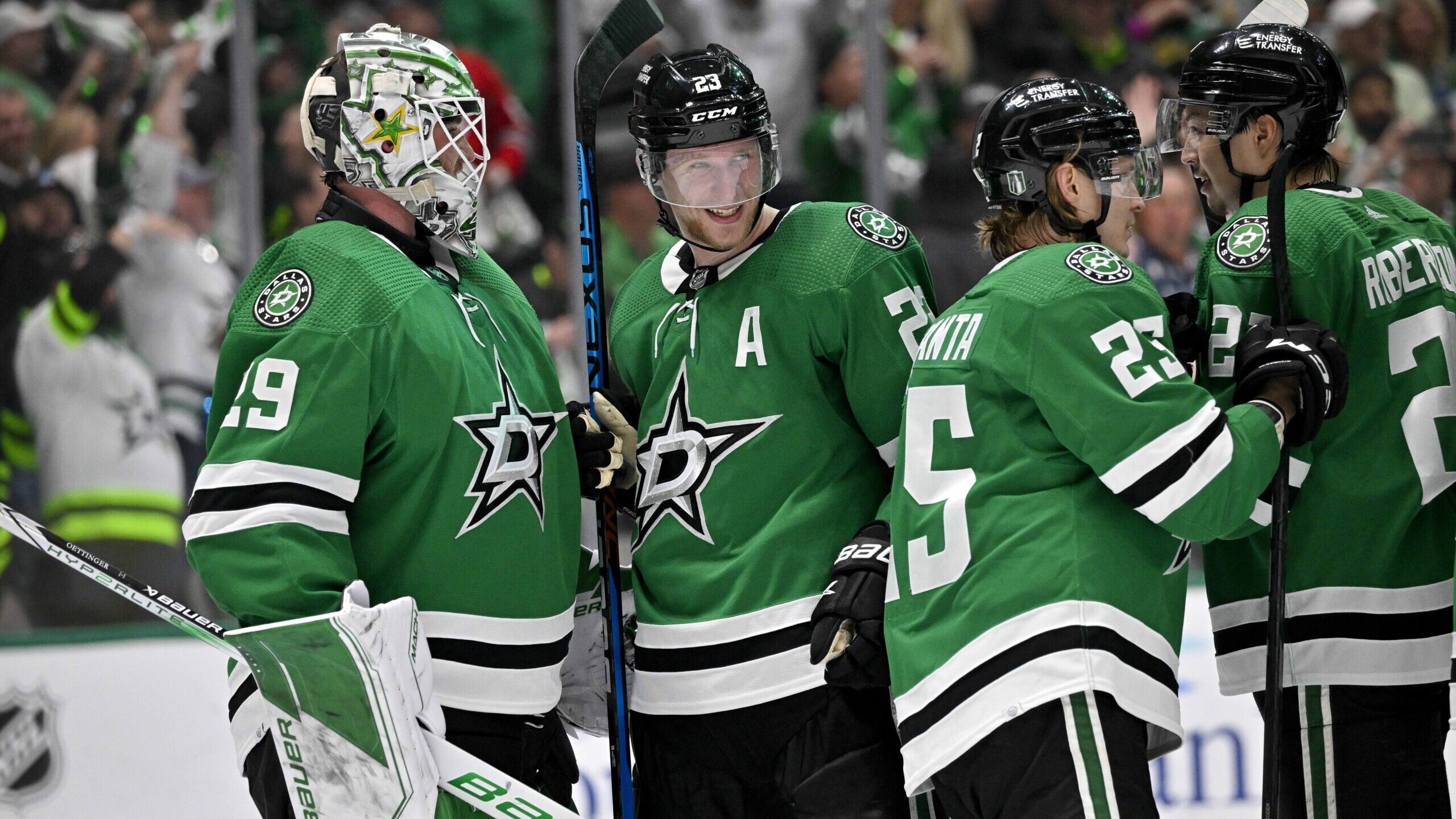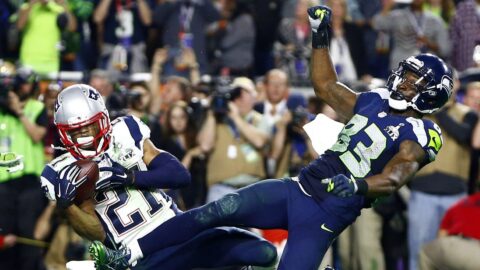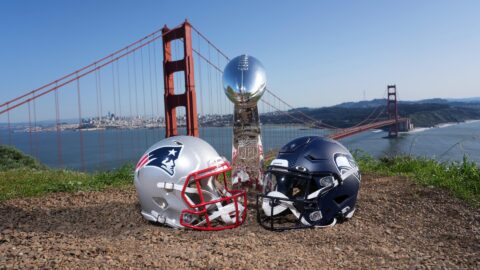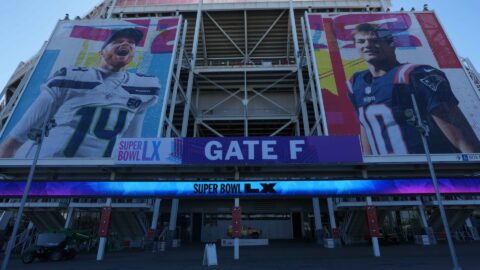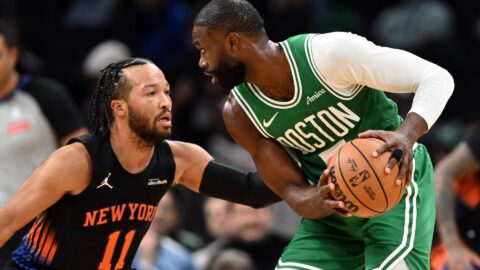Toughness is difficult to gauge. But it's not impossible.
Over time, the intangible nature of toughness does tend to manifest in tangible ways. The Miami Heat's success during the Jimmy Butler era, over supposedly more talented teams, is evidence of that.
Yet the idea that's crept into this year's Eastern Conference Finals about the Celtics possessing more talent and the Heat possessing more toughness is a bit too clean. No team that employs Marcus Smart should ever be accused of being soft. And Butler's resume is too stacked to label him anything except a bona fide stud.
Perhaps one team is tougher. Perhaps one team is slightly more motivated. Any disparity between the two sides' levels of motivation would be hard to prove.
But the source of each team's motivation? That's not hard to pinpoint at all. The Heat are driven by positive motivation: by their belief in each other and the circle of people who support them. The Celtics are driven by negative motivation: by adversity, the haters and the naysayers when their backs are against the wall.
Just look at two of the stars' very different takes on fan reactions during these playoffs.
After Game 1, when Miami came into Boston's house and stole home-court advantage, Butler was asked what it meant to hear Celtics fans booing their own team.
"Absolutely nothing, honestly," Butler said in the postgame news conference. "We're a confident group, whether we're up 10, down 10, we're not too worried about the opposing team. I think whenever you do that, you get lost in what got you where. We're so worried about us, all year long, and how we can be the best version of ourselves, that if we're up 10, down 10 ... booing, no booing, we've got to worry about the Miami Heat."
Contrast this sentiment with Jaylen Brown's challenge to Celtics fans after he deemed their support insufficient in the second round against the Philadelphia 76ers.
"Celtics fans, y'all love to call us out, right?" Brown said ahead of Game 7. "I'm going to call you guys out this time. The energy in the Garden has been OK, at best, all playoffs. Game 7, if you're there or if you're not there. If you're at home, if you're watching at a bar, if you're watching down the street at a friend's house, I don't care. I need you to be up. ... No excuses, we need everybody. I'm calling you guys out."
In both cases, both teams responded. The Heat took Game 1 of the ECF and the Celtics won their Game 7 against the Sixers. So good for them.
The bottom line, though, is that both teams say they don't care what outsiders think. Only one really means it.
Negative motivation can be effective. The problem is, it comes with limits. When there are no more real slights, where do you go for inspiration? No matter how many Super Bowls he won, Tom Brady was always able to go back to the sixth round of the 2000 NFL Draft. Despite multiple Cy Young Awards and a World Series ring, Pedro Martinez was always able to draw upon the scouts who said he would never be more than Ramon Martinez's little brother.
For negative motivation to work, there always needs to be an affront to counter.
Basketball-wise, the Celtics' best players never faced these sorts of knocks. Jayson Tatum and Brown were elite prospects who played for two of the finest college basketball programs and educational institutions. We're not going to say they didn't encounter personal challenges, be it criticism when they didn't immediately live up to their lofty potential in the NBA or real-world issues like racism as Black men in America. But from a pure sports standpoint, their list of slights pales in comparison to that of Butler, who started at a junior college and was taken with the last pick of the first round in the 2011 NBA Draft.
Some Celtics, for their part, recognize that only responding well when everything's on the line is risky.
"That shouldn't be the only time we respond," Celtics center Robert Williams III said Thursday, per NBC Sports Boston. "That's what we're trying to get out of the habit of. It's our effort and purpose, starting the game right and playing the right way. We're trying to shake that bad habit."
Because positive motivation can be a cup that never empties.
Rather than focus on insults, imagine you're instead driven by praise and support -- not just anybody's praise and support, but from those people who matter: the childhood friend who believed you'd make it; the youth coach who gave you extra drills because they could tell you cared more than the other kids; the family that was always there for you -- or, in Butler's case, even the family that wasn't.
Of his upbringing, during which his father left him and his mother reportedly kicked him out of the house, "I hated it whenever it came up because that's all anybody ever wanted to talk about," Butler told Chicago Magazine in 2015. "Like, that hasn't gotten me to where I am today. I'm a great basketball player because of my work. I'm a good basketball player because of the people I have around me. And if I continue to be stuck in the past, then I won't get any better. I won't change, I'll get stuck as that kid. That's not who I am. I'm so far ahead of that. I don't hold grudges. I still talk to my family. My mom. My father. We love each other. That's never going to change."
If you're looking for a reason why Butler's Heat consistently are in the mix at the end of the playoffs, it's this. It's much easier to sustain motivation driven by positives. At some point, if you constantly need a snub to overcome, the cheers become too loud and the praise too effusive to delude yourself into believing there's actually anything to rebuff. Universal admiration becomes your biggest enemy.
Maybe this is why the Celtics only seem to rise to the occasion when they're at their worst, or why they've paradoxically struggled in the friendly confines of TD Garden in the playoffs. They need somebody to say they can't, so they prove them wrong.
On the other hand, maybe the Heat's outlook explains why they didn't rest on the laurels of their NBA Finals participation trophy in the 2020 bubble or take solace in simply pushing the Celtics to seven games in last year's conference finals. Among themselves, the people who matter believe they can, and they want to prove those people right.
